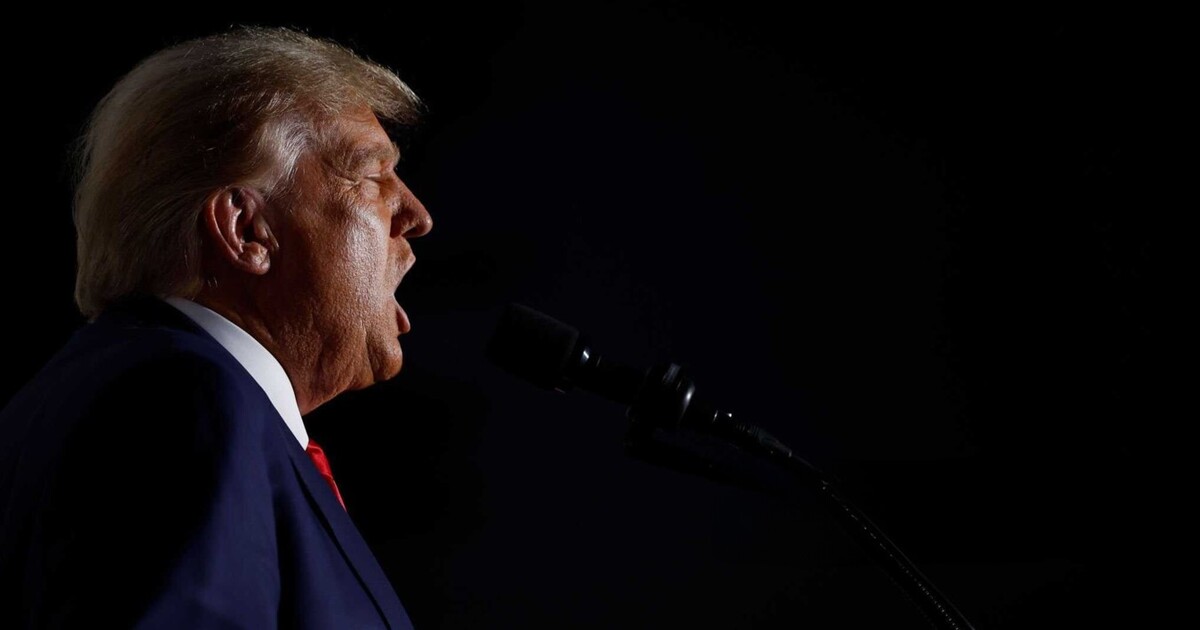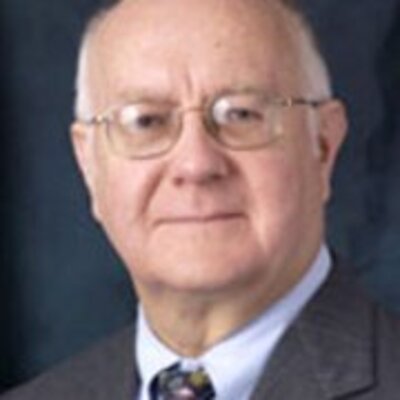Trump and Hitler: How Accurate a Comparison?
Along with many others, Republican vice-presidential nominee JD Vance has reportedly pondered at least once whether Trump would be America’s Hitler.
October 21, 2024

A Strategic Intervention Paper (SIP) from the Global Ideas Center
You may quote from this text, provided you mention the name of the author and reference it as a new Strategic Intervention Paper (SIP) published by the Global Ideas Center in Berlin on The Globalist.
Is the Trump-Hitler comparison accurate?
No. And yes.
To portray Trump as an American Hitler goes too far. The comparison is so inflammatory that it must be approached with exquisite care. There are stark differences between the two men, both in their backgrounds and their careers.
A child of privilege
Trump was raised as a child of privilege, fortified in his ambitions by inherited wealth. Hitler was born to a family of modest means. Time and again, Trump was able to move beyond financial setbacks in a life of affluence.
Meanwhile, Hitler, thwarted in his hope to become a noted artist, experienced severe hardship on the streets of Vienna. Though trained in a military school before college, Trump evaded wartime service by invoking “bone spur” disabilities.
Hitler served honorably as an enlisted man in the First World War, suffering serious injury, including temporary blindness.
The insider vs. the outsider
Trump rose to power as a celebrity who took over one of the two major political parties in the United States. Hitler’s ascendance required assembling minor nationalist factions into what would become the National Socialist German Workers Party (NSDAP or Nazi party).
One might say that Trump gained office laterally by taking control of an existing national organization. Hitler came to power by building his own institution from the ground up.
Eerie similarities
Yet, if those facts distinguish the two men, other elements of personality and performance are clearly similar. Both show a monomaniacal approach to politics.
Trump‘s often vulgar denunciation of his opponents’ alleged failures consistently highlights the claim that he alone can fix the problems in public policy and society. That claim finds an analogy in Hitler’s persistent demand that he be the sole leader in Germany.
“Fuehrerprinzip”
One cannot avoid seeing comparable traits in Trump‘s singular assertion of his unique abilities, and the Nazi leader’s insistence on the “Fuehrerprinzip,” the assertion that curing the country’s problems required vesting all power in one leader.
A politician that seeks to be a dictator “but only for a day” is setting the stage to prolong that status indefinitely. Hitler’s dictatorship did not occur instantly when he became German Chancellor in January 1933. Consolidation and perpetuation of his political dominance occurred swiftly in the months that followed.
Stormtroopers — then and now
The Nazi leader relied heavily on the violent, ragtag paramilitary groups that emerged in the wake of Germany’s 1918 defeat. He relied especially on the large number of so-called “storm troopers” mobilized to support the Nazi party as it enlisted millions of voters in the 1920s and 1930s.
No large-scale private militias exist in the United States, but Trump’s friendly stance toward the Proud Boys and others involved in the 2021 assault on the Capitol reveals a parallel inclination to threaten the constitutional order.
Trump has even stated that parts of the constitution may need to be suspended or altered.
That inclination is underscored by the Republican candidate’s constant refrain that any election he loses has to be rigged, that anyone who beats him has to have cheated — a theme that amounts to denying the possibility of the fair elections that are the bedrock of self-government.
Scorched earth policy
Trump’s demonstrated encouragement of the January 2021 uprising against the constitutional change of power bears some resemblance, albeit slight, to Hitler’s behavior as he was losing the war in April 1945.
The Nazi dictator ordered a scorched earth policy designed to destroy any remaining economic resources that the victors might use.
Though not effectively carried out, that order would have deprived German survivors of the limited remaining means to aid their recovery from the devastation to which his war had exposed them.
Trump’s attempt to disrupt the peaceful transfer of power to his chosen successor did not pose immediate economic crises but threatened the political process on which American democracy and prosperity rest.
The readiness to lie
Perhaps the most sinister analogy between Trump and Hitler is the readiness to lie. Both leaders have shown remarkable talent to project their declarations with little regard for whether they are true or false.
Hitler and his Propaganda Minister, Joseph Goebbels, were brilliant exploiters of the mass media of their time, especially radio, film and print. When one visits the vast stadium in Nuremberg where massive Nazi rallies gave Hitler breathtaking opportunities to animate his followers, the scale is beyond anything in the United States outside of some football arenas.
Trump’s emphasis on his rally size and audience responses recalls Hitler’s events. Once in office, the Nazi quickly suppressed any chance for other groups to mount similar rallies.
The Harris-Walz ticket faces no such obstacles, though Trump repeatedly complains when his opponents attract media attention.
Master propagandist — all by himself
A key point is that, in amplifying his voice, Trump enjoys even greater potential than Hitler. From his experience as a television showman, Trump shows eager interest in gaining coverage both in traditional media and in the myriad new channels of social media and other internet platforms.
If he lacks Hitler’s capacity to deny competitors’ access to those diverse outlets, he is still able to saturate them himself, mounting the equivalent of a full-court press.
Enemies everywhere
It is through his voluble speeches and media presentations that Trump invites a basic comparison to Hitler.
His habitual resort to epithets regarding his opponents resembles the Nazi’s style in describing those he saw as enemies — communists, Jews, anyone standing in the way of his quest for unfettered power.
At their core the two men share egos that are plainly narcissistic in the extreme. And that self-centered focus generates a coarseness of vocabulary and behavior that degrades politics.
Both men exhibit an intense will to power, a drive to dominate that is incompatible with genuine respect for the views and rights of others.
Media matters
The most notable difference between Hitler’s mass communications and those of Donald Trump is that, while the Nazis quickly suppressed independent media, the United States retains vigorous channels to challenge its leaders.
To be sure, the effectiveness of such challenges is diminished by the “stovepiping” of information in the United States, whereby citizens’ choice of information sources reinforces the dangerous polarization of society and politics.
Yet, there is considerable leakage between such stovepipes. That offers hope for true and balanced perceptions eventually to prevail among the citizenry.
Conclusion
General Mark Milley, who chaired the Joint Chiefs of Staff during the Trump presidency, has voiced his emphatic verdict to author Bob Woodward: “No one has ever been as dangerous to this country as Donald Trump … Now I realize he’s a total fascist. He is the most dangerous person to this country.” Many others who served with the former president offer similar views.
Nevertheless, a net assessment of the Hitler/Trump comparison is intrinsically controversial and necessarily tentative. The differences are manifold, but so are the similarities. A reasonable verdict is that Trump is no Hitler — unless the American people enable him to be one.
Takeaways
To portray Trump as an American Hitler goes too far. The comparison is so inflammatory that it must be approached with exquisite care.
Trump gained office laterally by taking control of an existing national organization. Hitler came to power by building his own institution from the ground up.
Perhaps the most sinister analogy between Trump and Hitler is the readiness to lie.
Trump’s emphasis on his rally size and audience responses recalls Hitler’s events.
Both Trump and Hitler exhibit an intense will to power, a drive to dominate that is incompatible with genuine respect for the views and rights of others.
Trump is no Hitler — unless the American people enable him to be one.
A Strategic Intervention Paper (SIP) from the Global Ideas Center
You may quote from this text, provided you mention the name of the author and reference it as a new Strategic Intervention Paper (SIP) published by the Global Ideas Center in Berlin on The Globalist.
Read previous

The Global History of the Peach
October 20, 2024

